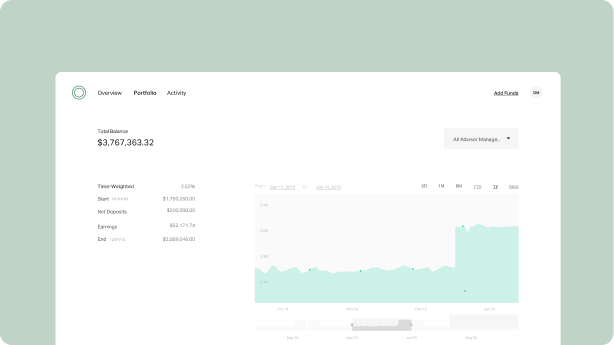Finding the right billing technology is critical for RIAs seeking to grow and scale their businesses. Whether your firm has a simple billing formula or a more complex system spanning different timeframes or asset tiers, integrating fee billing software into your tech stack can streamline your operations.
Not only is financial advisor billing software necessary for running a business smoothly – it’s also integral to establishing fee transparency and maintaining client trust. In a largely fee-based industry, accuracy is vital. Billing errors and hard-to-read statements can easily erode hard-won trust, so clients must have visibility into how much they’re being billed and how those fees are generated.
But with so many options, how do you decide on a fee-billing solution? What are the key aspects to consider?
What features should RIA billing software include?
Let’s examine the transformative impact that billing software can have on an advisory business by focusing on six essential components that any RIA fee billing software should feature:
- Flexibility
- Integration Capabilities
- Automated Solutions
- Transparency in Reporting
- A User-Friendly Interface
- Built-In Compliance
1. Flexibility
First and foremost, RIA billing software must be flexible and capable of adapting to the needs of your business. The solution you choose should be able to effortlessly manage diverse fee structures, whether AUM-based, fixed, hourly, or performance-driven.
It should also adjust quickly to account and market changes. For instance, when new funds are added to an account, immediate fee accrual should commence, with a "true-up" during the subsequent billing cycle, ensuring advisors capture positive market shifts. Also, immediate adjustments assure clients they aren't getting overbilled (especially important in a declining market environment).
2. Integration Capabilities
Your billing software should easily sync with other parts of your tech stack, such as portfolio management tools and custodian platforms. Ideally, your billing option should either be fully integrated into a multi-faceted platform (such as Altruist’s integrated fee billing software) or have API-level integration with industry partners. Seamless integration ensures data accuracy and gives advisors up-to-date information without redundant manual input.
3. Automated Solutions
The ability to automate billing procedures is critical. From invoice creation to client communication to payment tracking, this process can prove time-consuming – especially for firms processing high volumes of transactions.
But automation doesn’t only save time. It also eliminates the potential for human error. Tools like automated invoicing, payment processing, and fee computation simplify the billing process and are must-have features of any billing software for financial advisors. Choosing an automated solution also prevents potentially uncomfortable discussions about billing mishaps and ensures a straightforward billing process for advisors and clients.
4. Transparency in Reporting
Your business is built on communication, trust, and transparency – and the billing software you employ plays a vital role in running an efficient business and maintaining healthy client relationships.
Choosing a tool with robust analytics and an easy-to-comb database will help you track and evaluate billing data, such as billing history, fee breakdowns, and payment statuses, to ensure you’re billing clients accurately.
Your billing software should also be able to quickly generate reports for your clients, giving them direct visibility into their account fees. Clients naturally want to know what and how they’re being charged, that the amount is accurate, and that they can come to you with any questions.
Finding a billing solution that fulfills these needs can mean the difference between flourishing client relationships and missed growth opportunities.
5. A User-Friendly Interface
The ideal advisor billing software is designed with its users’ experience in mind – not just for the numbers being inputted. Navigating the tool’s interface should be intuitive and straightforward. Making adjustments or implementing new parameters should be hassle-free. A user-centric design also means that changes can be made quickly without relying on external teams or third-party vendors to resolve questions.
6. Built-In Compliance
Finally, because fee billing is carefully regulated by compliance standards, it’s essential to choose a billing software solution optimized for compliance. Here are a few things to look for:
- Audit Trails: Modern billing software should provide a clear record of all billing activities. This makes it easier for your firm to provide evidence of compliant practices in the event of a regulatory audit or internal review.
- Standardized Processes: Software standardizes the billing process, ensuring all clients are billed consistently. This standardization is essential in demonstrating that a firm doesn't discriminate in its billing practices and follows established protocols.
- Data Security: Compliance requires that client data be stored securely. Professional billing software solutions prioritize security, ensuring that sensitive financial data is protected against breaches and unauthorized access.
- Document Storage and Retrieval: Many advisor billing software tools allow for the storage of essential documents, such as client agreements that outline fee structures. Having easy access to these documents can be critical during reviews or audits.
How to choose the right RIA billing software
While there may be other factors to consider, these six elements should be top of mind as you evaluate billing software options for your advisory business. A modern billing system that covers these bases can enhance your efficiency and strengthen client relationships and ensure regulatory compliance. In the world of financial advice, where trust, precision, and timeliness are key, the right tools can make all the difference.













